Global warming is a fact of life and the amount of energy we consume can only make this worse. Therefore, anything that can be done to reduce our energy consumption will reduce the impact on the environment. Intelligent systems have been designed to reduce this impact. We are going to look at three ways:
- Heating systems
- Traffic Control
- Car management systems
Heating Systems
Over the past couple of years, heating systems have become more intelligent to try to save energy and save the customer money. Some of the ways this is being done are:
Knowing when the house is empty
Some intelligent systems track the occupancy of the house by the location of the occupier’s smartphones. If all the smartphones are ‘out of the house’ then it can lower the temperature of the house. If any of the smartphones start moving toward the house (using the phones GPS) then the heating can be increased; the closer the smartphone gets to the house the nearer it will be to the desired temperature.
Smart climate assistant
Some intelligent heating systems can be linked via the Internet to the weather forecast. If a very cold spell of weather is forecast then the heating can automatically be increased (or the time it is on extended). Similarly if a very warm spell is forecast then the temperature can be lowered or the system switched off all together.
Remote control of the heating system
Many intelligent heating systems now allow you to control your heating via your smartphone. For example, if you are going to be delayed at the office, what is the point of heating an empty house? By using your smartphone you can override the controls and tell it to switch on the heating later.

Zoning areas of the house
Different areas of the house are used more or less frequently, so what is the point of having them all at the same temperature? For example a spare bedroom may only be used once a month so could be set to a lower temperature.
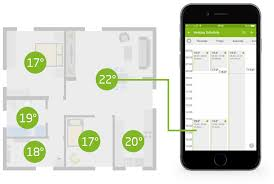
All of the above should reduce the amount of ‘wasted’ energy our heating systems use therefore reducing the impact our heating systems are having on the environment.
Traffic Control
Some of the ways intelligent systems are trying to reduce the environmental impact of this are:
Adaptive Traffic Signals
Adaptive traffic signals adjust the timing of their green light cycles to match current traffic conditions on the ground. They are constantly collecting data about approaching vehicles and creating new timing sequences to match them.
Adaptive Traffic Signals utilise video cameras and sensors to collect information about the vehicles approaching an intersection. Software analyses this information and creates a customized timing sequence in real time. The software communicates this sequence to coordinated signals up and down the corridor, so that they all function in sync with each other. This means that the traffic flows better and hence there is less pollutants given out so lessening the environmental impact.
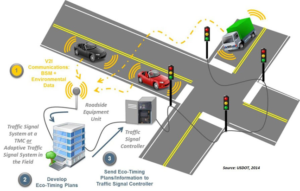
Intelligent Routing Systems
Google reportedly paid $1billion for an app called Waze. Waze generates many of its maps by using GPS to track the movements of its nearly 50 million users. Users of Waze share “information about slowdowns, speed traps and road closures, allowing Waze to update suggested routes in real time. This should allow for less hold-ups due to accidents, traffic jams, roadworks etc and hence reduce wasted energy and pollutants.
There is some talk of Waze being integrated into Google’s driverless cars therefore allowing the cars to take the most economic route.
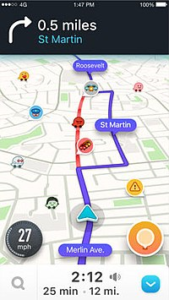
Driverless Cars
Cars consume much more fuel and hence give out more pollutants when they are driven erratically. Using high acceleration and severe braking at the last minute, uses a lot more energy than a gradual acceleration and deceleration. Unfortunately, at the moment this is controlled by the driver. However, driverless cars are set to become available in the near future. These cars will have an intelligent system that will ensure that they gradually accelerate and decelerate (except in an emergency) which should reduce the energy consumed and hence reduce the impact on the environment.
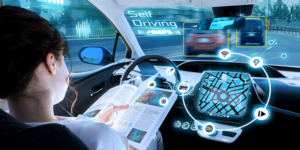
Car Management Systems
A number of manufacturers are using car management systems to try and reduce the impact of the car on the environment.
Some of the ways intelligent systems are trying to reduce the environmental impact of this are:
Intelligent Start Stop Systems
When a car sits at traffic lights with the engine idling, it is using fossil fuels and emitting polluting fumes. Car manufacturers have created a system called the ‘Intelligent Start/Stop System’ whereby when the car is in neutral and the clutch engaged the engine will automatically be switched off. When the clutch is disengaged then the engine automatically starts again. This system is estimated to be reducing fuel consumption by between 3% – 10%.
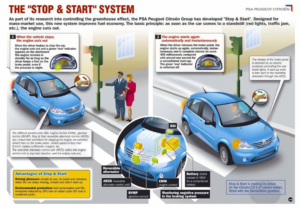
Engine Control Units
Engine control units are becoming more common in cars as manufacturers try to reduce emissions from their cars and improve energy efficiency. A variety of sensors including temperature and manifold air pressure sensors ensure an optimized air-fuel mixture for more efficient combustion. A more efficient combustion means less fuel used and less pollutants.
